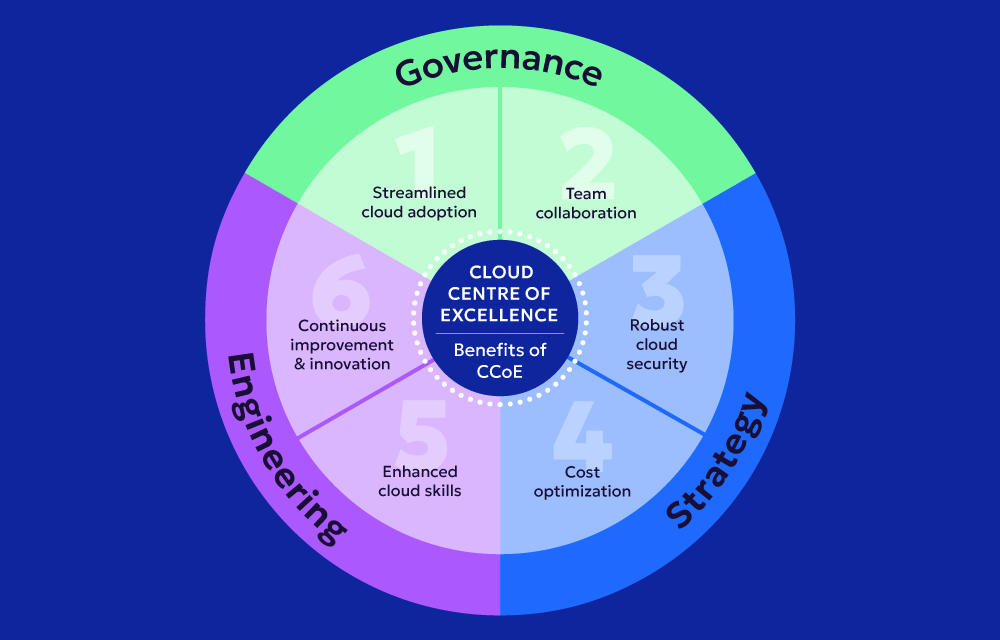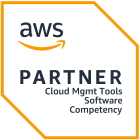History
The concept of a Cloud Center of Excellence Emerged as enterprises started to realize the complexities involved in scaling cloud adoption across their internal structures. This model has been increasingly adopted over the past decade as organizations aim to leverage cloud computing for strategic advantage while managing risk and governance.
Value Proposition
The value of a CCoE lies in its ability to provide a centralized vision and leadership for cloud adoption that drives efficiencies and standardization. It facilitates innovative and agile cloud solutions, optimizes costs, ensures compliance with regulations, and secures the cloud environment. More in-debt explanation of the value proposition can be found in AWS’ guide.
Challenges and Limitations
- Resource Constraints: Building a CCoE often requires significant upfront investment in skilled personnel and technology.
- Cultural Resistance: Shifts to cloud-based operations can meet with resistance in organizations accustomed to traditional IT approaches.
- Keeping Pace with Technology: Rapid evolution in cloud technologies demands continuous learning and adaptation within the CCoE.
Service Models
CCoEs typically oversee the adoption and management of various cloud service models:
- Infrastructure as a Service (IaaS): Managing and optimizing infrastructure resources.
- Platform as a Service (PaaS): Guiding development frameworks and deployment practices.
- Software as a Service (SaaS): Ensuring the effective use of cloud software applications.
Deployment Models
CCoEs play a crucial role in advising on and managing different cloud deployment models:
- Public Cloud: Leveraging third-party cloud providers like AWS, Azure, or Google Cloud.
- Private Cloud: Overseeing internal cloud environments.
- Hybrid Cloud: Managing and optimizing integrated public and private cloud operations.
Architecture
The architecture of a CCoE involves structuring the team and processes to support comprehensive cloud management. This includes:
- Governance Frameworks: To ensure control and compliance.
- Operational Best Practices: To enhance efficiency and effectiveness in cloud operations.
- Technology Stack Management: To maintain and optimize cloud technologies.
Market
The demand for CCoEs has grown as organizations increasingly recognize the need for specialized expertise and strategic oversight in cloud computing. This is reflected in the expanding market for cloud governance and management solutions.
List of Clouds
Similar Concepts
- DevOps Teams: Focus on integrating development and operations for agility and efficiency.
- IT Governance Committees: Oversee broader IT management practices, not limited to cloud.
- Digital Transformation Offices: Guide the organization-wide adoption of digital technologies.
- FinOps Teams: Specialize in financial management and cost optimization of cloud services, ensuring operational and budgetary efficiency.
See Also
References
For further details, consulting primary sources and current literature on cloud computing best practices and organizational structure is recommended.
Further Reading
- Architecting the Cloud: Design Decisions for Cloud Computing Service Models by Michael J. Kavis
- Cloud Computing: Concepts, Technology & Architecture by Thomas Erl, et al.




